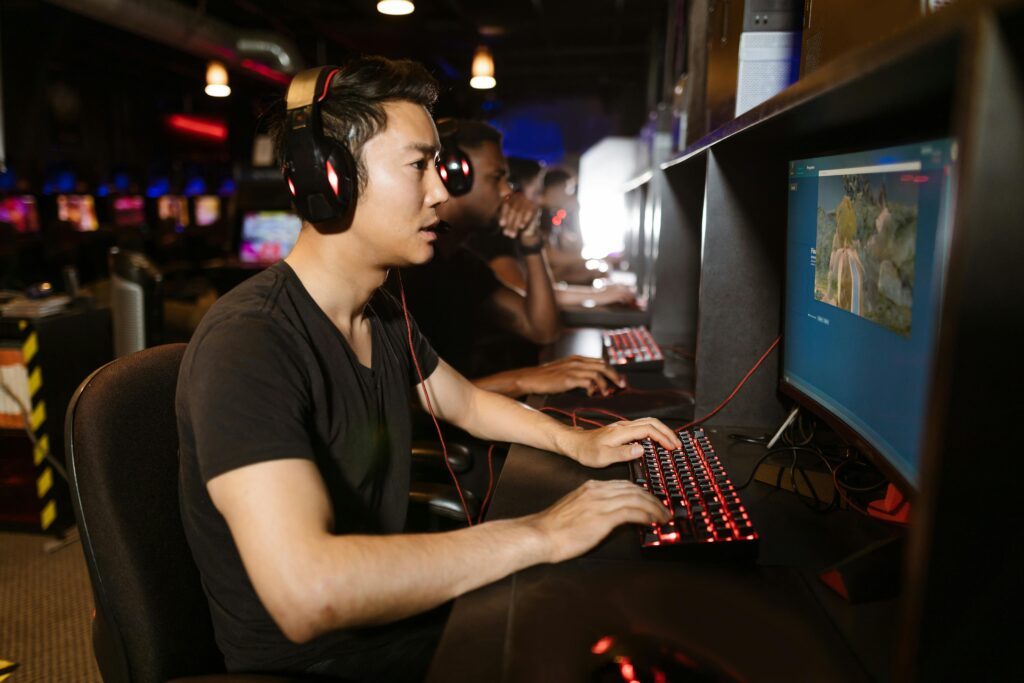Online multiplayer games offer a platform for players to connect, compete, and collaborate. However, they can also be breeding grounds for toxic behavior, bullying, and harassment. Addressing these issues is essential for creating a positive gaming environment. This article explores effective strategies for preventing toxicity, bullying, and harassment in online multiplayer games, ensuring a safer and more enjoyable experience for all players.
Understanding Toxicity, Bullying, and Harassment in Gaming
Toxicity: Toxic behavior in gaming includes negative actions such as verbal abuse, trolling, and griefing. This behavior can ruin the gaming experience for others, leading to frustration and discouragement.
Bullying: In the gaming context, bullying involves repeated aggressive behavior intended to hurt or intimidate others. This can include persistent targeting, exclusion, and spreading rumors.
Harassment: Harassment encompasses unwanted behavior that targets individuals or groups, creating a hostile environment. This can include sexist, racist, or homophobic remarks, as well as stalking and doxxing.
The Impact of Toxic Behavior in Games
Toxic behavior not only affects the victims but also the overall health of the gaming community. It can lead to:
- Decreased Player Retention: Players are less likely to continue playing a game if they experience or witness toxic behavior.
- Mental Health Issues: Victims of bullying and harassment can suffer from anxiety, depression, and other mental health problems.
- Negative Reputation: Games known for toxic communities can suffer from a tarnished reputation, deterring potential new players.
Strategies for Preventing Toxicity in Online Multiplayer Games
- Implementing Robust Reporting Systems
An effective reporting system allows players to report toxic behavior easily. Game developers should ensure that these systems are accessible and provide clear guidelines on what constitutes reportable behavior.
Timely Action: Reports should be reviewed promptly, with appropriate actions taken against offenders. This can include temporary bans, permanent bans, or other penalties.
- Establishing Clear Community Guidelines
Clear and comprehensive community guidelines set the tone for acceptable behavior in the game. These guidelines should be communicated to all players and enforced consistently.
Education and Awareness: Regularly educate players about the guidelines and the importance of maintaining a positive gaming environment. This can be done through in-game messages, forums, and social media.
- Promoting Positive Behavior
Encouraging positive behavior can help counteract toxicity. Recognize and reward players who demonstrate good sportsmanship, teamwork, and helpfulness.
In-Game Rewards: Implement systems that reward positive behavior, such as commendation points, special titles, or in-game currency.
- Using Artificial Intelligence for Moderation
Artificial intelligence (AI) can be a powerful tool in detecting and moderating toxic behavior. AI can monitor in-game chat, identify abusive language, and flag inappropriate content for review.
Proactive Monitoring: AI systems can detect patterns of behavior that indicate potential toxicity, allowing for early intervention before issues escalate.
- Creating Safe Spaces for Communication
Providing players with tools to control their communication settings can help prevent harassment. This includes features like mute options, private messaging, and customizable chat filters.
Privacy Controls: Allow players to control who can contact them and view their profiles, reducing the risk of unwanted interactions.
- Fostering a Supportive Community
Building a supportive community where players feel valued and respected can reduce the prevalence of toxic behavior. Encourage community-building activities and events.
Community Moderators: Appoint community moderators to oversee interactions and address issues promptly. These moderators can be volunteers or paid staff who are trained to handle conflicts effectively.
The Role of Players in Preventing Toxicity
Players themselves play a crucial role in maintaining a positive gaming environment. Here are ways they can contribute:
- Leading by Example
Players should model good behavior, demonstrating respect and kindness towards others. Positive actions can inspire others to follow suit.
- Standing Up Against Toxicity
Players can help by reporting toxic behavior when they see it. They can also support victims by offering words of encouragement and standing up to bullies in a respectful manner.
- Participating in Community Initiatives
Engaging in community events, forums, and discussions can help build a stronger, more cohesive community. Players can share ideas on improving the game environment and collaborate on solutions.
The Future of Online Gaming Communities
The future of online gaming communities lies in the collective efforts of developers, players, and technology. By implementing effective measures and fostering a culture of respect, the gaming world can evolve into a safer, more inclusive space for everyone.
Technological Advancements: As technology advances, new tools and methods for detecting and preventing toxic behavior will emerge. Virtual reality (VR) and augmented reality (AR) games, for example, will require innovative approaches to moderation and community management.
Global Collaboration: International collaboration between game developers, regulatory bodies, and player communities can lead to the development of universal standards and best practices for preventing toxicity in online gaming.
Conclusion
Preventing toxicity, bullying, and harassment in online multiplayer games is a multifaceted challenge that requires a proactive and collaborative approach. By implementing robust reporting systems, establishing clear guidelines, promoting positive behavior, utilizing AI for moderation, creating safe communication spaces, and fostering supportive communities, the gaming industry can make significant strides towards creating a healthier and more enjoyable environment for all players. Players themselves play a crucial role by leading by example, standing up against toxicity, and participating in community initiatives. Together, we can ensure that online gaming remains a fun, inclusive, and positive experience.



